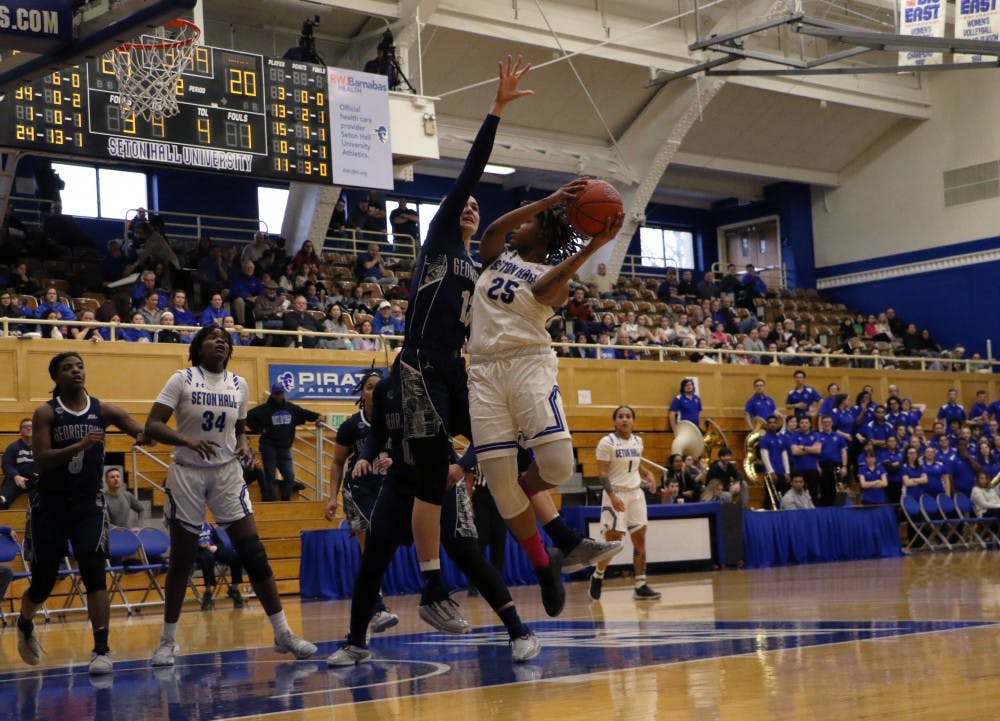As another semester draws to a close, students are considering studying abroad as an option both to fulfill requirements and experience a different culture.
Kirk Rawn, the associate provost for International Programs, said all students can benefit from studying abroad, regardless of their major.
However, certain majors such as nursing might have an easier time completing a summer study abroad than a full semester study abroad.
Andrea Favero, a junior biology major, will be studying abroad this summer. Favero is participating in a short term Semester at Sea program in Central America to take a geology course which will count toward her environmental studies minor.
"I love to travel and I am interested in seeing countries that are not given the same advantages as us," Favero said.
Freshman Eugenia Hermo plans to utilize the study abroad program here at Seton Hall.
"I applied for a two-week course in Rome, but I do not know if I am going yet," Hermo said. "Although I have not chosen a major, I am very interested in cultural studies, which is something that we would be studying while in Italy."
Studying abroad provides students with credits that transfer back to Seton Hall, Rawn said.
"Students who study abroad generally take 15-18 credits during a fall or spring semester," Rawn said. "Depending on the student's major, the credits could be in the major, minor, school or college core requirements, or free electives."
For credits to count toward a student's Seton Hall transcript, they must complete an application to study abroad, according to Rawn. The application includes a course transfer form.
"On the credit transfer form, each course that the student plans to take abroad is listed with the Seton Hall course equivalent that is being requested to transfer," Rawn said. "Students obtain signatures of the department chairpersons who oversee the subject matter that will be studied. The student's adviser and dean must also sign the form."
The Office of International Programs must also sign the form before it is finally sent to the Registrar. Once the student completes the classes, a transcript is sent to the University and the credits are applied to the student's transcript, Rawn said.
"It was very difficult to get all of the information I needed in the beginning and (the Office of International Programs) kept losing my documents so that I was forced to send them several times," Favero said.
Financially, students find various ways to pay for a study abroad program.
"Some students take loans to finance their study abroad experiences," Rawn said. "Students participating in Seton Hall's tuition exchange agreements pay Seton Hall tuition and can have their academic scholarships apply to their tuition. Competitive scholarships, such as the Gilman Scholarship, are available."
Favero is working two jobs to pay for her study abroad. In addition, she will take a small loan and accept scholarships and grants from the Semester at Sea program.
Junior Clara Brunkhorst used the Gilman Scholarship to pay for her semester abroad in Costa Rica.
"I chose Costa Rica because of my interest in Latin America and specifically in sustainable development and the environment," Brunkhorst said.
The Gilman Scholarship offers study abroad scholarships to students who receive federal Pell Grants. Since she met the requirement, Brunkhorst decided to apply for the scholarship.
When Brunkhorst returned to Seton Hall, she gave a presentation about the application process, tips and her overall experience.
"The event and photography gallery (on display at the Walsh Library Gallery) were all elements that incorporated as a part of the required Follow-On Project proposal included in my original Gilman summer Scholarship application," Brunkhorst said.
Rawn said any student interested in studying abroad should stop by the Office of International Programs for assistance.
Jessica Card can be reachedat jessica.card@student.shu.edu.





